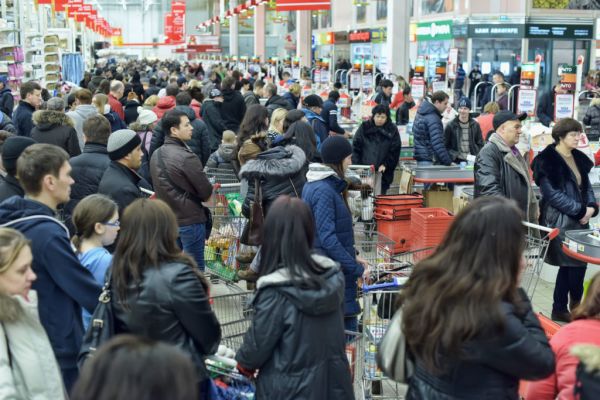Amidst reports of panic buying in stores, as well as the introduction of quotas on certain product segments, a leading professor in supply chain strategy has offered advice on why panic buying is not the solution many consumers believe it to be.
According to Jan Godsell, professor of operations and supply chain strategy at WMG, University of Warwick, the grocery retail model in the UK, and indeed in other markets, is geared around " sophisticated planning systems that seek to balance demand and supply", tailored to seasonal patterns, and the impact of promotions and other events.
'Unprecedented Spikes'
"The one type of demand that these systems really don’t like is unpredicted spikes in demand," she explains. "Most grocery products have a relatively stable, and predictable rate of demand that the retailers can plan for. If this suddenly increases, it can take time for the supply chain to react, and move the stock that is further upstream to the shelf.
"The problem at the moment is that whilst there is stock upstream in the supply chain, it is hard for the retailers to replenish it to shelf at the rate consumers are taking it. It also means that rather having stock in a warehouse, that could be used by all, the stock gets isolated in our homes, where it can only benefit an individual or their family.
"Grocery retailers are taking the really sensible step of ‘rationing’ to try and smooth out these spikes. This is a really responsible reaction, and one to be commended as it will help to ensure that everyone gets the essential items they need."
Panic buying also has a negative impact on the most vulnerable in society, as well as those that cannot afford to stockpile essential goods – with rationing a potential solution to ensuring availability to a wider range of shoppers.
"Many in the UK have to budget carefully and only have the financial resources to buy what they need, when they need it," says Godsell. "Rationing should improve availability of products to all, and encourage everyone to buy at the rate that they consume. In that way we should all have access to the essential items we need.
"Further measures by grocery retailers to prioritise delivery slots, and have dedicated in-store shopping slots for the elderly and vulnerable are be commended too."
Additional Measures
In terms of additional steps that could be undertaken, Godsell notes that some retailers are still offering BOGOF promotions, or other promotions that encourage shoppers to buy more than they actually need.
"Perhaps now is the time to stop such promotions, move to fixed pricing, to discourage purchasing more than required," she says.
She also adds that UK retailers could take learnings from their compatriots in Italy, which have had to deal with the impact of coronavirus on their operations for several weeks now.
"The Italian retailers are a number of weeks ahead of the UK retailers in understanding the impact of the virus on demand," she says. " It would be expected that once initial panic buying is over, when cupboards are full, replenishment will return to a more normal rate.
"There may be some uplift as we stay at home, and consume more in our domestic environment. Insight from the Italians, shared with UK retailers and their suppliers could help us to prepare."
© 2020 European Supermarket Magazine – your source for the latest retail news. Article by Stephen Wynne-Jones. Click subscribe to sign up to ESM: European Supermarket Magazine.














